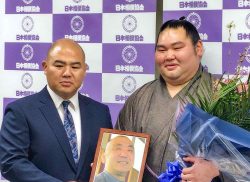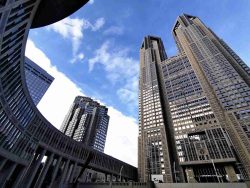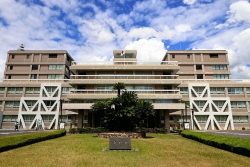12:33 JST, September 17, 2021
Anticipation is growing worldwide for new technologies such as small nuclear reactors to be part of efforts to reduce greenhouse gas emissions. To prevent Japan from being left behind the international competition, the government must strengthen its research and development systems.
The Japan Atomic Energy Agency (JAEA) has resumed the operation of the High Temperature Engineering Test Reactor in Ibaraki Prefecture. It was built in the 1990s to develop a next-generation small reactor but had to be shut down after the accident at Tokyo Electric Power Company Holdings Inc.’s Fukushima No. 1 nuclear plant.
The test reactor is a high-temperature gas-cooled reactor that uses helium rather than water for cooling. The nuclear fuel in the reactor is covered with ceramics that can withstand high temperatures. Hydrogen explosions and core meltdowns are less likely to occur, and its safety can be said to be superior to that of conventional reactors.
Small nuclear reactors, including high-temperature gas-cooled reactors, are called “small modular reactors” (SMRs). The technology is attracting attention in many countries as the construction costs of SMRs are expected to be lower than those of conventional reactors, and their small size makes them more flexible in terms of location.
In the United States, start-ups and universities supported by the U.S. Energy Department are rapidly promoting the development of small reactors. China is also actively working on projects and it has reportedly started operating a demonstration reactor for practical use.
Japan’s research on high-temperature gas-cooled reactors was ahead of other countries. In 2004, Japan was the first country in the world to succeed in achieving a temperature of 950 C. It is hoped that the JAEA will make up for the 10-year delay in research.
To realize a decarbonized society, it is said that there is a need for a large amount of hydrogen fuel, which does not emit carbon dioxide when burned. In recent years, high-temperature gas-cooled reactors have been highly evaluated because they can produce hydrogen using the high-temperature gas generated during power generation.
The JAEA aims to build a hydrogen production facility adjacent to the test reactor and establish a method to produce large amounts of hydrogen in conjunction with power generation.
Power generation with renewable energies, such as solar and wind, is subject to weather variability, so the electricity supply tends to be unstable. Hydrogen production also requires a lot of energy. Anticipation is high for reactors that can simultaneously generate electricity and produce hydrogen.
The restart of nuclear power plants in Japan has stalled, and there are concerns about handing down technology in the nuclear power industry to future generations. The development of nuclear power technology requires long-term plans that span several decades. With an eye on the future, it is necessary to take steps now.
The government intends to cooperate with Poland and Britain in the development of high-temperature gas-cooled reactors. Demand for small reactors is expected to grow in developing countries as well. It is important for the government to continue its efforts in order to protect and nurture competitive domestic technologies.
— The original Japanese article appeared in The Yomiuri Shimbun on Sept. 17, 2021.
Top Articles in Editorial & Columns
-

Riku-Ryu Pair Wins Gold Medal: Their Strong Bond Leads to Major Comeback Victory
-

Reciprocal Tariffs Ruled Illegal: Judiciary Would Not Tolerate President’s High-Handed Approach
-

China Provoked Takaichi into Risky Move of Dissolving House of Representatives, But It’s a Gamble She Just Might Win
-

Japan’s Plan for Investment in U.S.: Aim for Mutual Development by Ensuring Profitability
-

Flu Cases Surging Again: Infection Can Also Be Prevented by Humidifying Indoor Spaces
JN ACCESS RANKING
-

Producer Behind Pop Group XG Arrested for Cocaine Possession
-

Japan PM Takaichi’s Cabinet Resigns en Masse
-

Man Infected with Measles Reportedly Dined at Restaurant in Tokyo Station
-

Israeli Ambassador to Japan Speaks about Japan’s Role in the Reconstruction of Gaza
-

Videos Plagiarized, Reposted with False Subtitles Claiming ‘Ryukyu Belongs to China’; Anti-China False Information Also Posted in Japan





















